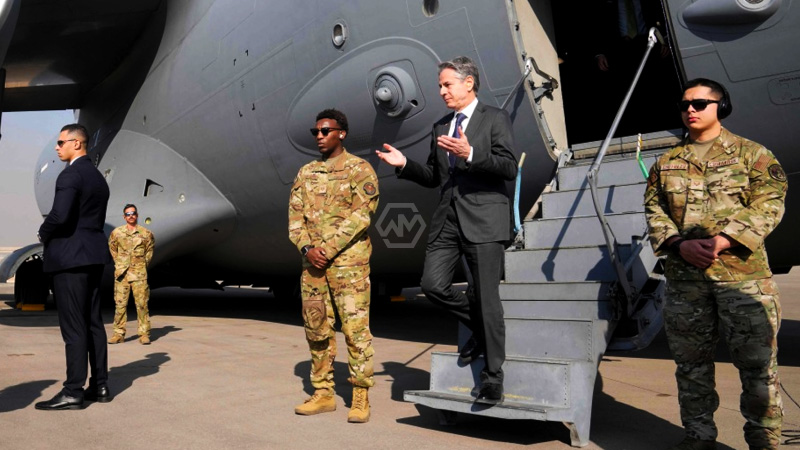- U.S. authorities said Blinken is expecting to get a report on Hamas’ reaction to the proposition in both Cairo and Doha.
- Egypt has cautioned that an Israeli organization along the boundary would undermine the ceasefire the two nations gave up forty years prior.
- On each of the three fronts, Blinken faces significant difficulties.
- Hamas and Israel are openly in conflict over key components of an expected ceasefire.
U.S. Secretary of State Antony Blinken was in Cairo on Tuesday for a gathering with Egyptian pioneers that U.S. authorities said would focus on arranging a truce in the Israel-Hamas battle in return for the arrival of prisoners held by the aggressors.
Blinken’s visit additionally comes while developing worries in Egypt about Israel’s expressed aims to extend the battle in Gaza to regions on the Egyptian boundary that are packed with dislodged Palestinians.
US Secretary and Egyptian Leaders were in Meeting
Israel’s guard serve has said Israel’s hostile will ultimately arrive at the town of Rafah, on the Egyptian boundary, where the greater part of Gaza’s 2.3 million individuals have looked for shelter and are presently residing in progressively hopeless circumstances.
U.N. helpful screens said Tuesday that Israeli departure arranges now cover 66% of Gaza’s domain, driving thousands of additional individuals consistently toward the boundary regions.
Egypt fears a development of battle in the Rafah region could push scared Palestinian regular citizens across the line, a situation Egypt has said is still up in the air to forestall.
Blinken, who was meeting Tuesday with Egyptian President Abdel-Fattah el-Sissi, has said over and over that Palestinians should not be constrained out of Gaza.
During his most recent outing, Blinken is looking for progress on a truce bargain, possible standardization of relations among Israel and Saudi Arabia, and forestalling a heightening of provincial battling.
Israel has excused the US’s requires a way to a Palestinian state, and Iran’s assailant partners in the locale have given little indication of being dissuaded by U.S. strikes.
Egypt — alongside Qatar, where Blinken will be later Tuesday — has been attempting to intervene in an understanding between Israel and Hamas that would prompt the arrival of additional prisoners as a trade-off for a few drawn-out stops in Israeli military tasks. The frameworks of such an arrangement were worked out by insight bosses from the U.S., Egypt, Qatar, and Israel before the end of last month and have been introduced to Hamas, which has not yet officially answered.
Blinken will then venture out to Israel to brief Israeli Head of the State Benjamin Netanyahu and his Conflict Bureau on Wednesday about what he heard from the Middle Eastern pioneers.
As on his past four excursions to the Mideast since the Gaza war started, Blinken’s other principal objective is to keep the contention from spreading, an errand made dramatically more troublesome by moved forward assaults by Iran-moved state armies in the district and progressively serious U.S. military reactions in Iraq, Syria, Yemen, and the Red Ocean that have strengthened since a week ago.



